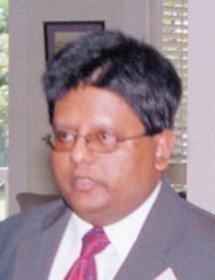Six months after an order was approved in the National Assembly to upgrade the salary of the acting Chief Justice to the scale of the Chancellor, opposition parliamentarians yesterday called for a more inclusive law.
AFC MP Sheila Holder triggered a debate on the issue in the House yesterday when she asked Finance Minister Dr. Ashni Singh to explain the basis for making the Chief Justice Pension Order. She also asked why the order placed the emoluments of the two senior judicial officers on the same level.
Singh explained yesterday that the order was made to remedy a situation, noting that at no fault of the Chief Justice existing rules denied him access to reasonable benefits. “The extant situation sees a judicial officer whose upward advancement in the judiciary is stymied by constitutional gridlock…non-appointment of a substantive Chancellor continues to frustrate his upward mobility and imminent access to superannuation benefits,” Singh said.

He said too that in the absence of the order, the acting Chief Justice Ian Chang could leave office as a substantive Justice of Appeal, even after providing years of commendable service at a higher level. He said that Justice Chang’s service “has been and continues to be beyond what is required of a Chief Justice.”
Further, he said that Justice Chang’s reasonable expectations enjoyed the support of the administration, noting that the Chief Justice is the only Senior Counsel currently sitting on the judicial bench.
But Holder questioned whether the administration’s favour with the Chief Justice was also not applicable to the acting Chancellor, Justice Carl Singh. Holder said: “Why are these benefits also not accruing to the Chancellor? Surely his responsibilities are different from those of the Chief Justice. Why then are the salaries equated?”
Singh, in response, said that the acting Chancellor is being paid emoluments to which he is entitled. Holder pressed on with the question as to whether the two senior judicial officers are now being paid the same salary, but Singh repeated his earlier response about entitlement. At this point, the rumbling on the opposition benches got louder.
Speaker of the Assembly, Ralph Ramkarran then interjected, saying that it was clear the Chief Justice’s salary has been upgraded to that of the acting Chancellor.

Opposition leader Robert Corbin then questioned whether the recent order, which now makes the acting Chief Justice’s position pensionable, is not setting “a colossal precedent which affects other categories of acting positions.” Corbin then raised the issue of former acting Chief Education Officer Genevieve Whyte-Nedd, noting that her pension rights would be calculated on her old salary. “You are not creating a precedent where you are passing legislation for the Chief Justice to have his pension calculated on his acting salary? Why not make this a standard principle in the interest of justice across the public service than discriminate in this way?” Corbin said, to resounding applause from members on the opposition benches.
Corbin emphasized that he had no objections to the Chief Justice receiving his benefits but opined that the law should be more inclusive.
Singh said that Corbin’s question did not relate to the substantive issue and offered no response but told the house he did not agree with the opposition leader’s assertions.
The issue was still being debated after the assembly adjourned with opposition members saying very publicly that the law was discriminatory in nature.
The House will meet next Thursday to consider supplementary estimates laid over by the Finance Minister and loan contracts which the government recently signed with the Inter-American Develop-ment Bank.





